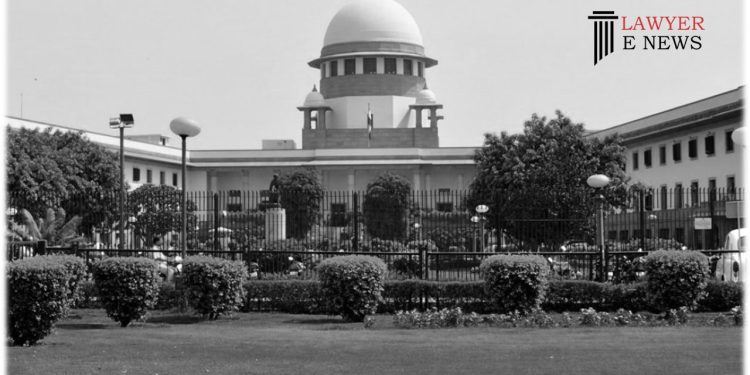Government can show public interest to avoid carrying out promise made under promissory estoppel: Supreme Court

On 20 April 2023, the Supreme Court held, in a recent Judgement Bishambar Vs M/s Arfat Petrochemicals Pvt. Ltd, that the doctrine of promissory estoppel is an equitable doctrine, which must yield when equity so requires. The doctrine of promissory estoppel can be displaced when the government can demonstrate that public interest would be prejudiced if the government were required to carry out the promise. In such cases, the Court must balance the public interest in the government carrying out a promise made to a citizen, which has induced the citizen to act upon it, against the public interest likely to suffer if the promise were required to be carried out by the government and determine which way the equity lies. When the government can show that public interest requires that it should not be compelled to carry out a promise or that the public interest would suffer if the government were required to honor it, the doctrine of promissory estoppel would be displaced. The decision was handed down by a bench comprising of Justices Surya Kant and Vikram Nath.
Facts : land situated in the Kota District of Rajasthan which was leased out to J.K. Synthetics Limited (JKSL) by the State Government in 1967. After JKSL became a sick industrial company, the State Government transferred the lease to Resurgent Rajasthan Trust (RRT), which in turn transferred it to Respondent No. 1. The State Government and Rajasthan State Industrial Development and Investment Corporation Ltd. (RIICO) canceled the supplementary lease deeds executed between RIICO and Respondent No. 1 for sub-division and conversion of land, citing their lack of authority to do so. The High Court of Rajasthan quashed the cancellation, leading to the State and RIICO filing appeals before the Supreme Court.
The Supreme Court observed that the doctrine of promissory estoppel, which prevents one party from going back on a promise made to another, is an equitable doctrine that can be displaced when public interest requires. When the government can demonstrate that public interest would be prejudiced if it were required to carry out the promise, the court must balance the public interest in the government carrying out the promise against the public interest likely to suffer if the promise were required to be carried out by the government.
The Court held that the supplementary lease deeds signed between the respondent company and RIICO were unsustainable. RIICO did not possess the authority to enter into these agreements, as the land in LIA, Kota remained under the ownership and control of the State Government uninterruptedly from the first lease signed with Jaipur Kala Kendra until the present date. Respondent No. 1 was also cognizant of this fact as evinced by it entering into the seven transfer lease deeds with the Collector, Kota, in 2007, after it stepped into the shoes of JKSL.
The Court also noted that the land in LIA, Kota was never transferred to RIICO under the Government Order dated 18.09.1979. The State Government has always maintained title and ownership of the area. The leases with Jaipur Kala Kendra and all leases thereafter with the respondent company were signed under the 1959 Rules, which were in compliance with the 1959 Rules.
Supreme Court upheld the cancellation of the supplementary deeds and quashing of the approvals for conversion of land and sub-division of plots, leaving open the possibility for the respondent company to re-approach the State Government to seek conversion of the usage of land and attendant approvals under the 1959 Rules. The Court also granted liberty to the Appellant Unions to approach the appropriate government and other forums as permitted by law to seek their respective dues. Appeal Allowed.
Bishambar Vs M/s Arfat Petrochemicals Pvt. Ltd,






